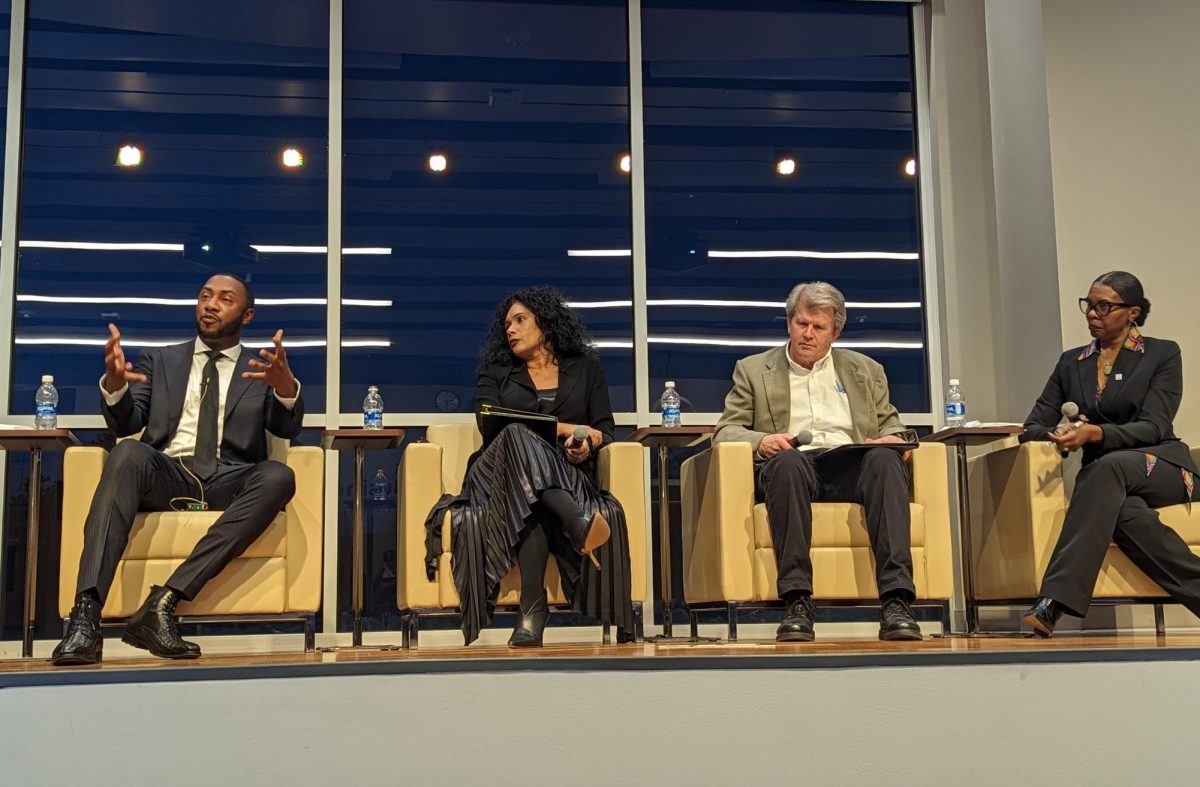
The 31st annual Fordham Debate ended in a stalemate.
Debaters argued Tuesday night whether a corporation should be considered a person under the U.S. Constitution. Kent Greenfield, professor of law at Boston College, argued in favor of corporate personhood. Jeff Clements, co-founder of Free Speech for People, argued against.
Clements said corporations are entities and therefore should not receive rights specifically stated in the Constitution for people.
“Every time we see the word ‘people’ in the constitution, it is used as a reference to human beings,” he said. “Essential human activities of religion and speech should not apply to an entity.”
He said corporations are often seen metaphorically as people when operating under state law, such as when signing a contract. But he argued this can cause real harm to U.S. citizens, particularly through minimum wage laws.
Greenfield said corporations deserve the rights laid out in the First Amendment, especially the freedoms of speech, religion and press. Organizations such as universities, publications and non-profit companies are corporations that Greenfield said need to have some constitutional rights in order to operate. Without constitutional rights, he said, the government could limit companies from printing unwanted press about political leaders and could control what information was released to the public.
But he did concede that not all rights are applicable to a corporation.
“The personhood notion is a red herring,” Greenfield said. “Corporations cannot sit on juries, cannot vote, cannot possibly have all the rights of human beings.”
Jeff Schwartz, a professor in the U’s College of Law, moderated the event and said he thought the topic was important and necessary to examine from both standpoints.
“I think it depends on the situation and which rights are being applied to a corporation,” he said. “It’s sometimes useful to consider corporations as people. I think not considering corporations as people at all is an overgeneralization.”
Around 275 people attended the debate this year, with an overflow room set up for those who did not fit into the auditorium. The debate was also streamed live on the College of Law’s website.
Thulasi Seshan, a freshman in physics, said she attended the debate because she plans to pursue a law degree after graduating.
“I mostly came to be informed and hear what both debaters had to say,” Seshan said. “Honestly, I don’t think corporations should be seen as people in the Constitution. I think that’s an original violation of the bullet rights. There’s not a lot of getting around that.”
She said Greenfield had a point that corporations deserve protection against governmental power but does not agree that the solution is to consider corporations congruent to people.
“Corporations do need their own rights,” she said. “But the Constitution’s rights are for people, not institutions.”
[email protected]
@katrinavastag





















